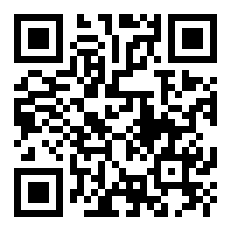Evaluating the socio-cultural expressions of ideology and identity construction in the Ẹdo (Benin) guilds
DOI:
https://doi.org/10.60787/jnlp-v5-51Keywords:
Guild System., the Ẹdo (Benin) language, Variation, Linguistic Ideology, Identity, LinguisticAbstract
This paper investigates the use of Edo language to mark the linguistic identity of the guild and to express their cultural ideology in the Ẹdo (Benin) society. The Edo guild system is a professional body associated with the Edo (Benin) socio-cultural and political institutions
revolving around the Monarchy. The guilds further represent the association of the brass and bronze casters and are organized and located in Igun Street along Sokponba Road in the Benin metropolis of Edo State. Bucholtz and Hall’s Socio-Cultural Linguistic Approach was adopted as the theoretical framework. This theory was adopted for a better appraisal of the ideological and identity issues addressed in the study. Data were collected through in depth interview of three (03) principal informants (individuals with knowledge of the activities of the guilds so examined) and direct observation of interaction between the members of the different guilds. The data collected were subjected to discourse and lexical analyses. The cultural tenet of the guild’s (ideology) is responsible for the secret nature of their activities which has contributed to the emergence of the distinct register mentioned here. The guilds can be grouped ideologically as one but in terms of identity, different groups exist due to the specialized nature of their activities as seen from their use of the Ẹdo (Benin) language. The implication of these findings from the guild system is that the choice of language use is
determined by some ideological orientation which in the context of this study is synonymous with the cultural values of the society that creates such distinctions between royals and commoners’ identities.
References
Agheyisi, R. N. (1986). An Edo-English Dictionary, Ethiope Publishing.
Aigbedo,W. I. (2022). The Ẹdo Guilds as Agents of Language Purification. Iden: A Journal of Ẹdoid Studies. Department of Linguistics Studies, University of Benin, Edo, Nigeria. 1 (1) :11-18.
Ajayi, T. M. (2015). Identity mapping strategies-cum-ideologies in selected Yoruba Christian songs among Yoruba Christians in Nigeria. Journal of Modern Languages, 25:60-82.
Bucholtz, M. and Hall, K. (2004). Theorizing Identity in Language and sexuality research. Language in Society, 33.4:469-515.
Capozza, D. and Brown, R. (2002). Social Identity Process. London: SAGE Publications Ltd.
Chew, P. G. (2014). Language choice and religious identities in three Singaporean madrasahs. IJSL, 229.
Chua, S. K. C. (2010). Singapore’s language planning and its globalized concepts of bi(tri)lingualism. Current Issues in language planning, 11. 4: 413-429.
Egharevba, J. (1956). Benin Titles. Ibadan: Ibadan University Press. Egharevba, J. (1966). A Short History of Benin. Ibadan: Ibadan University Press.
Elugbe, B. (1979). Some Tentative Historical Interferences from Comparative Edoid Studies. KIABARA 2.2.
Elugbe, B. (1986). Comparative Edoid: Phonology and Lexicon. Delta Series. No. 6 Port Harcourt: University of Port Harcourt Press. Giles, H. and Johnson, P. (1987). Ethnolinguistic identity theory: a social psychological approach to language maintenance. Int'l. J. Soc. Lang. 68
Greenberg, J. H. (1963). The languages of Africa. Bloomington: Indiana University.
Gumperz, J. J. (1982). Language and social identity: studies in interactional sociolinguistics. Cambridge: Cambridge University Press.
Hollington, A. (2015). Reflections on Ethiopia Youths and Yarada K’wank’wa: Language practices and Ideologies. Sociolinguistic Studies, 10. 1: 135-152.
Johnson, S. and Milani, T. M. (2010). Language Ideologies and Media Discourse: Texts, Practices, Politics. London: Continuum International Publishing Group
MacRuairc, G. (2011). They ‘are my worlds – I ‘II talk how I like! Examining Social Class and Linguistic Practice among primary school children. Language and Education, 25. 6: 535-559.
Melzian, H. (1937). A Concise Dictionary of the Bini Language of Southern Nigeria, London: Kegan Paul, Freuch, Trubner & Co. Ltd. Nair-
Venugopal, S. (2000). English, Identity and the Malaysian Workplace. World Englishes, 19. 2: 205-213.
Nwagbo, O, G. (2014). Language and Identity in Oru Refugee Camp, Osun State, Nigeria. Thesis. Linguistics and African Languages, University of Ibadan, Ibadan.
Oloso, Y. O. (2017). The Politics of Language and Identity in Ilorin. Thesis. Linguistics and African Languages, University of Ibadan, Ibadan.
Ọmọzuwa, V. E. (2010). Edo Phonetics and Phonology. Benin City: Ambik Press. Schieffelin, B. B. Woolard, K. A. and Kroskrity, P. V. (1998). Language Ideologies: Practice and Theory. New York: Oxford University Press.
Tajfel, H. (1974). Social identity and intergroup behavior. Social Science Information, 13, 65– 93. 252 Y. Y. Kim
Tajfel, H. (1978). Differentiation between social groups. London: Academic Press.
Tajfel, H. and Turner, J. C. (1979). An Integrative theory of intergroup conflict. In the Social Psychology of Intergroup Relations, W. C. Austin and S. Worchel (eds). 33-53.
Tajfel, H., & Turner, J. (1986). The social identity theory of intergroup behavior. In S. Worchel & W. Austin (Eds.), Psychology of intergroup relations (2nd ed.). Chicago: Nelson-Hall, 7–24
Uwajeh, M. K. C. (2007). Translation Equivalence: An Essay in Theoretical Linguistics. Lincom Europa.
Verschueren, J. (2012). Ideology in Language Use: Pragmatic Guidelines for Empirical Research. Cambridge: Cambridge University Press.
Warschauer, M. N., Ghada, R. and Zohry, A. (2006). Language choice online: Globalization and Identity in Egypt. Journal of Computer Mediated
Communication, 7. 4: 15-25.
Williamson, K. and Blench, R. (2000). Niger-Congo. In African Languages: An introduction, Bernd, H. and Nurse, D. (eds). Cambridge: Cambridge University Press, 11-42.











